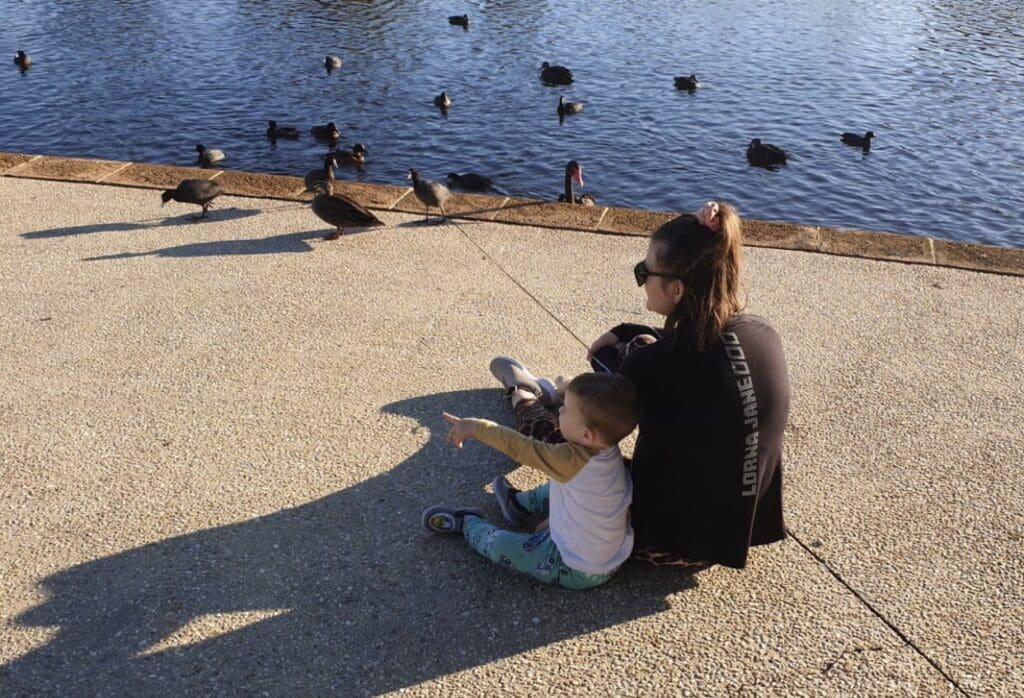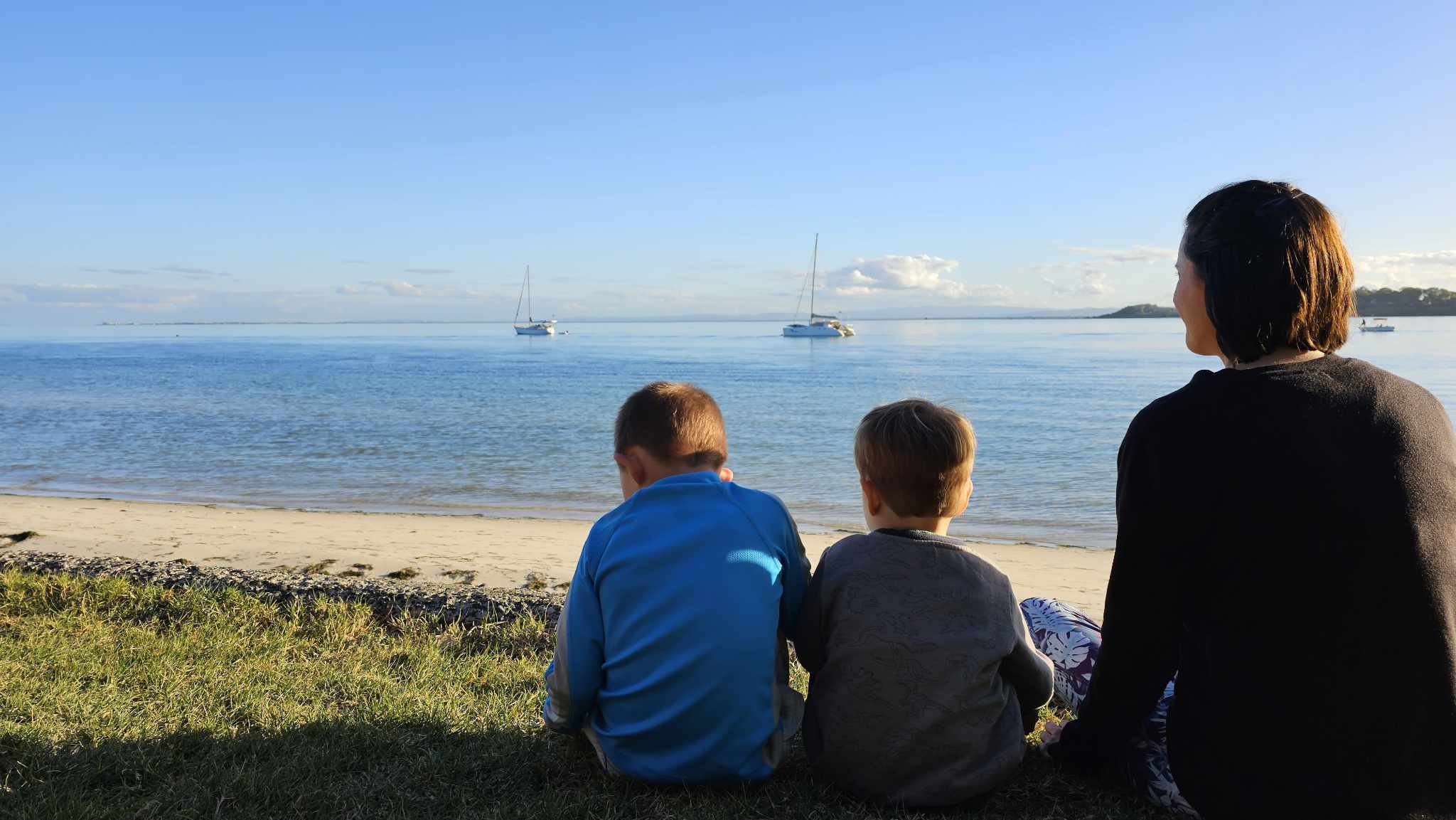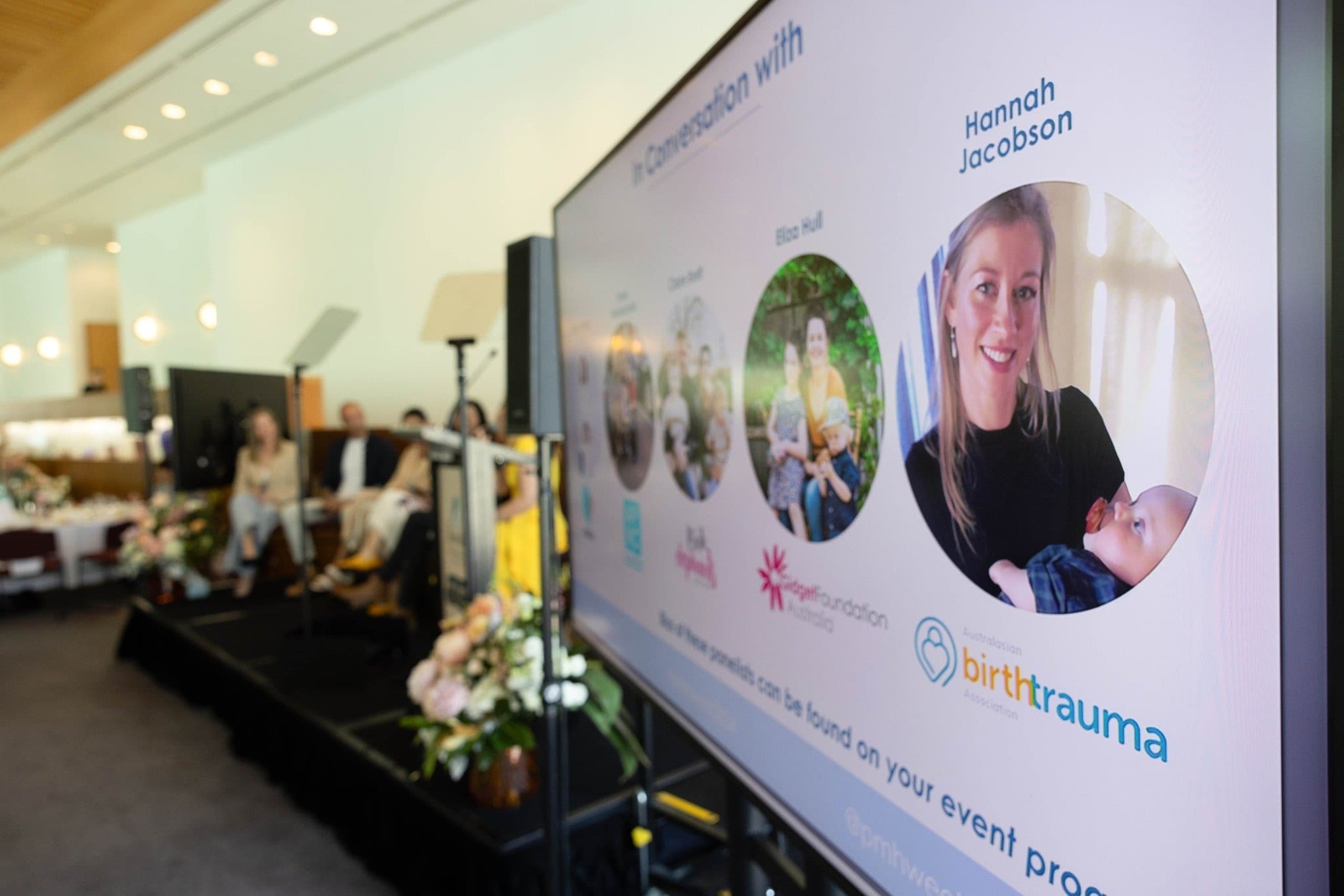Trigger Warning: This birth story discusses postpartum PTSD after a forceps birth, and deals with topics including postnatal depression and anxiety, third-degree tearing and prolapse. If you are triggered by these topics you may wish to skip this blog or read it once you have support available. If you are seeking support for your birth trauma, you may wish to contact our Peer Support Service.
My labour was induced with tape and I didn’t know that I wouldn’t take my whole bag with me to the labour room, so when active labour started and I had to move rooms, I felt really rushed and had my arms full of loose stuff that I wanted to take with me. The midwife barely spoke to me and walked so far ahead. She just kept walking when I had to stop and breathe through contractions. I actually apologised to her for having to stop!
I had a really simple birth plan. I basically asked to be as mobile as possible and to be able to use a fit ball. I ended up with constant monitoring and being stuck on the bed. Every time I went to the toilet, I had to lay on my back to have the monitor straps removed and replaced, it was agonising to be on my back. It wasn’t until my student midwife arrived and asked if there was a mobile monitor that could be used that it was changed over. I felt so angry about that – I wasn’t in the headspace to ask but felt like I should’ve advocated for myself. I’m so grateful for my student midwife, she was absolutely incredible and advocated for me even though the midwife had been incredibly rude to her when she first arrived.
As we got to the pointy end of labour it was handover time, which I think made it more chaotic. Turns out the reason being on my back was so painful was that my baby was posterior and somehow it wasn’t picked up on earlier. I had thought if I had a posterior baby I would have an epidural, but it was far too late for that. All I had was gas.
During that time, our son’s heartrate dropped, and the emergency button was pressed. I remember the room filling up and a woman I didn’t know barking at my husband to turn off our music. She stood in a corner the whole time; I still don’t know why she was there. Like a lot of women experience, I didn’t understand what was happening and was just told, “We need to get this baby out.”
While pushing, the doctor tried to manually turn Evan, and I just have no words to describe the level of pain that involved. At that moment, I screamed, and the woman standing in the corner barked at me to stop screaming.
The doctor wasn’t able to turn him, and they had a consultant come in (she told me at a postnatal appointment that she just happened to be walking past). I remember her being really kind and she talked me through what they would be doing. I had an episiotomy and she used forceps and our son was born on the third push with them (at which point he pooed all over me!) I was able to hold him for the shortest amount of time before he was whisked over to have mucous extracted. I remember looking over at him and shaking and just continuously asking if he was okay.
I got to hold him again for a really short time before going to theatre. He had just started trying to find my breast when I had to go, and it is my biggest regret that I didn’t ask for more time to try to feed him. I still feel sad when I read about the golden hour and how wonderful it is. And then I feel guilty because other people have far worse experiences.
I spent the next four hours in theatre to repair a third-degree tear while my husband went with our son to the special care nursery.
There were a few things that happened afterwards that compounded the trauma. The midwife on the ward repeatedly told me off for trying to breastfeed more than every three hours. She initially wouldn’t let me feed at all, and instead hand expressed colostrum, which she then fed to my son via a syringe. When she finally “showed” me how to feed it was everything it shouldn’t be, and Evan and I were both in tears and she implied it was my fault because I kept asking to feed him before he was ready. In a big ‘f*** you’ to her, I went on to demand feed and bed share, and I’m still breastfeeding two years on!
When we were home, on the day my milk came in, I got a call from the hospital to tell me that Evan had been exposed to whooping cough while he was in the special care nursery. He needed preventative antibiotics and was completely fine, but it terrified me, and I think it was the start of my postnatal anxiety. I obsessively checked his temperature and listened to his breathing until we passed the length of time the disease could present itself. I would constantly envision all the different ways he could be hurt or die. And I was terrified he would be stolen – I had a whole routine for getting in and out of the car so that he was never out of my reach.
The physical recovery was really hard. I remember having to take a cushion to my first few mothers’ group meetings because the chairs were so hard. That was six weeks after birth. I remember visitors coming and I would have to ask them to sit on the armchair so that I could sit sideways on the couch.
I remember talking to my mum about how I was feeling. I had so many moments of just crying, all day sometimes. And then moments of complete and utter rage. Never directed at my son, but I was scared by my anger. I threw our robot vacuum into the hallway because it kept getting stuck. I was also having flashbacks to being told to stop screaming and would vividly see the doctor’s hair at the moment she tried to turn my son.
Unfortunately for me, I needed a lot of pelvic floor physiotherapy and the internal examinations were really triggering. The physio suggested I might have PTSD and told me I might need to get help. I remember feeling like I couldn’t have that because I hadn’t experienced anything significant or long-term enough.
But sure enough, I had postpartum PTSD. I saw a therapist who used Eye Movement Desensitisation and Reprocessing (EMDR) and it helped enormously. I previously couldn’t talk about my experience without breaking down completely and feeling like I had failed. I can talk about it now, but the most important thing it helped me with was forgiving myself. The therapy helped me truly believe that I did my best in a difficult situation and that it was specific people and systems that let me down.
When I first started talking about how I was feeling, the constant messages were “but at least you and your baby are okay”. This just sent me into a spiral of guilt and feeling like I had nothing to be upset about. Of course the MOST important thing is for mum and baby to be well, but it isn’t the only thing. I felt completely broken, my husband literally had to pick me up off the floor so many times. I was so far from okay. And saying that also made me feel like it excused some of the things that happened to me in the hospital – like the fact that my baby and I survived was the only measure of my caregivers doing a good job, and I don’t believe they all did.
About eight months postpartum I was diagnosed with a bladder prolapse. This brought about a whole new set of emotions to deal with. I felt broken all over again. I will have to deal with the physical impact of the birth for the rest of my life. I definitely went through a grieving process and felt so much rage about what had happened to my body. It’s something I’m still processing.
Only a few days ago my son got really upset with me because I wouldn’t jump like a frog with him. I don’t even want to know how much I’ve spent on physio and therapy in the last two years! I’m so on board with the petitioning to have wider access to pelvic floor physiotherapy.
Two years on and I still continue to struggle with the anxiety. It’s not constant but it’s still there in the background. I feel sad that so much of Evan’s life has been spent with me being unwell and having to go to multiple appointment – I feel like I might’ve missed out on some of the joy. But I really, truly love being a mother now. It felt like I started to emerge from a fog around the 18-month mark, and parenting became really fun.
I want to thank all the women who have shared their stories before me – the stories I read helped me to feel less alone and a little less broken.
If you would like to connect with a person who has experienced birth-related trauma, please contact our Peer2Peer Support service to connect with one of our Peer Mentors.





One Response
Emma I too can relate to so much of your story – having ended up having a forceps delivery after many hours of labour with hardly any pain relief. Don’t worry about the golden hour that your missed out on – a golden lifetime with your son is what I would wish for you. Sharing stories like yours takes courage, as it involves reliving the whole horrific experience in great detail. I teared up reading your experience, this is 38yrs after the event for me. What saddens me most is, that even today, needless trauma is caused by some medical staff who can be so needlessly arrogant. Hope this changes in the not too distant future.